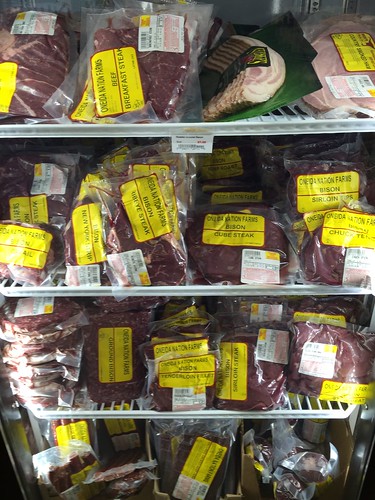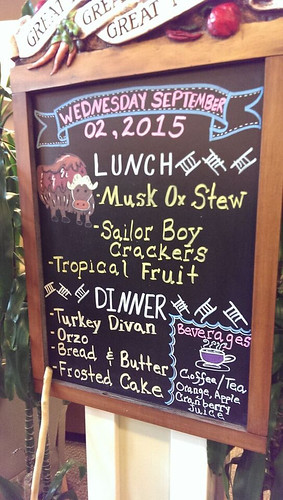
USDA celebrates National Native American Heritage Month in November with a blog series focused on USDA’s support of Tribal Nations and highlighting a number of our efforts throughout Indian Country and Alaska.
Traditional foods are of significant value to Native American and Alaskan Natives today. The same foods that have been used to feed our ancestors not only feed our bodies, but they feed our spirit. The U.S. Department of Agriculture (USDA) recognizes this importance and works diligently to offer program and partnership opportunities that help enhance traditional food access in Indian Country.
If your tribal community is looking to donate traditional foods to serve at food service programs at public or non-profit facilities, the Service of Traditional Foods in Public Facilities memo provides guidance for organizations and institutions operating under the USDA Food and Nutrition Service (FNS) Child Nutrition Programs (CNP). The acceptance of these donations is largely possible due to changes in the 2014 Farm Bill that defines traditional foods as including wild game meat, fish, seafood, marine mammals, plants, and berries.
Additionally, the recently published Child Nutrition Programs and Traditional Foods memo is a guide that your community can use to incorporate traditional foods in the dietary guidelines in school meals or child and adult care centers. The National School Lunch Program, in particular, allows school districts and independent schools to receive cash subsidies and donated commodities from the USDA for each meal they serve, while the Summer Food Service Program (SFSP) ensures that low-income children continue to receive nutritious meals when school is not in session.

The USDA Food Safety and Inspection Service (FSIS) and Food and Nutrition Service (FNS) have partnered with the Department of Health and Human Services (DHHS), Food and Drug Administration (FDA) to establish rules and regulations to ensure that all products to be served in CNP meals are safe, wholesome, and correctly labeled and packaged. Last week, FNS responded to multiple inquiries regarding the buying of local meat, poultry, game, and eggs in Child Nutrition Programs with the Procuring Local Meat, Poultry, Game, and Eggs for Child Nutrition Programs memo. This memo provides information on how Tribal Nations and CNP operators can begin navigating through federal, state, and local food safety requirements to incorporate more local and traditional foods into their programs.
USDA continues to support Tribal communities in the use of their traditional foods. Under law, CNP programs are coordinated by state agencies, and FNS has tasked each state office with implementing these guides. The USDA Office of Tribal Relations (OTR) serves as a single point of contact for Tribal issues or concerns across all USDA agencies. To find out how we can partner with you and your goals, please call my office at (202) 205-2249.

